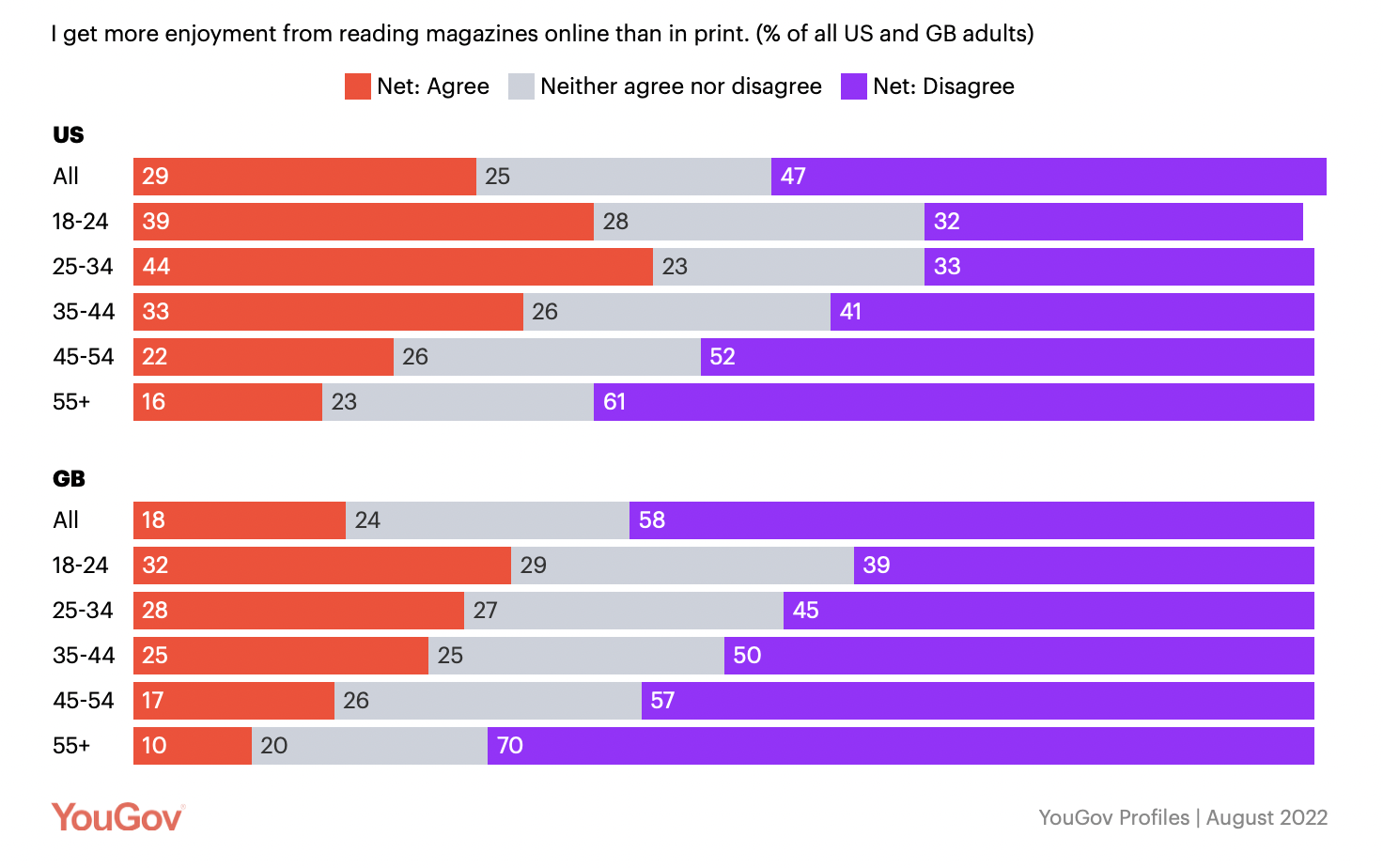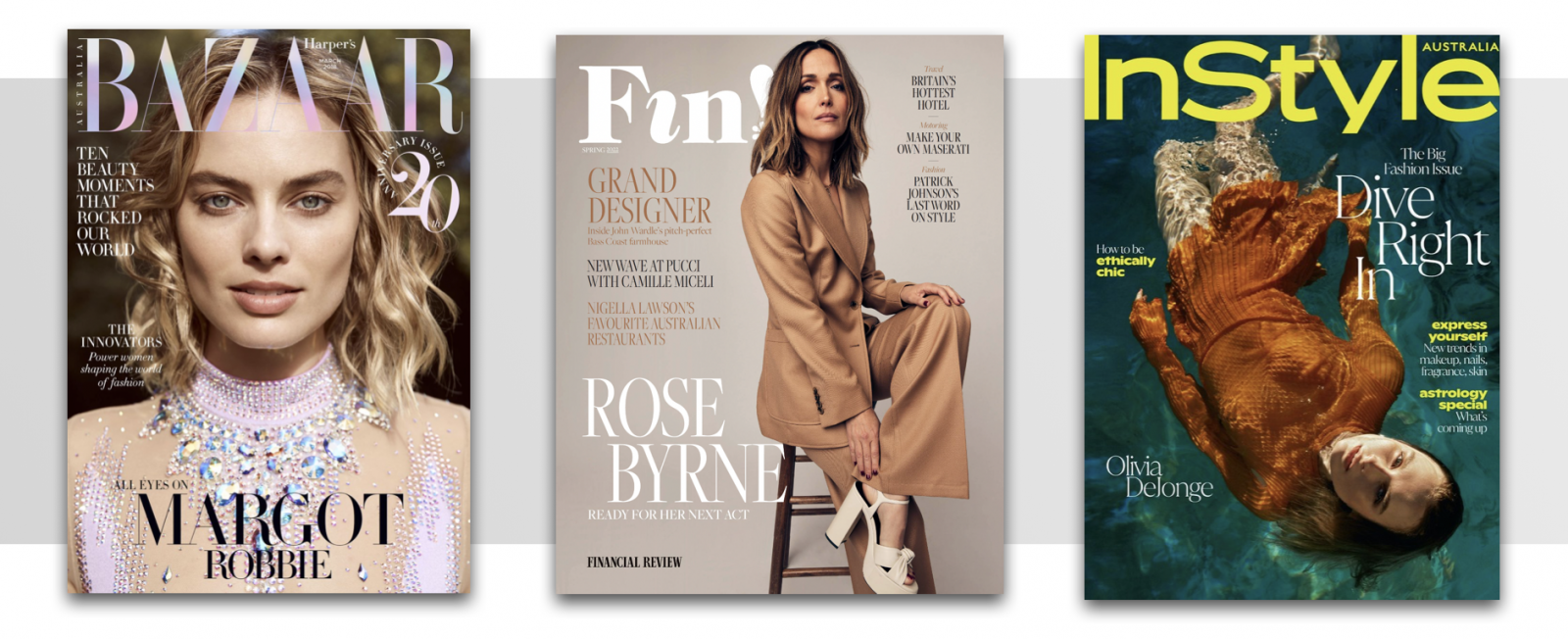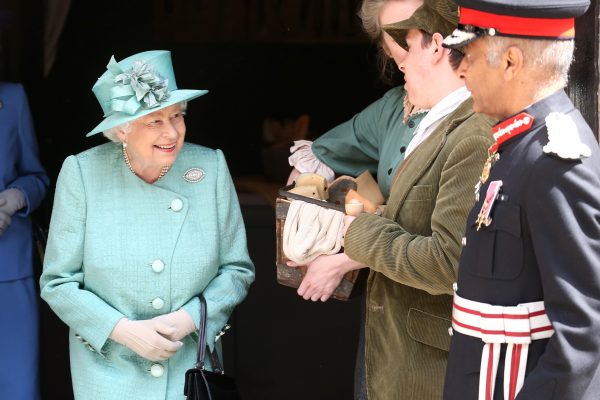The Media Weekly: a shining example of international networking in media
A sombre return to the business of media this week, as the world mourns the loss of one of history’s most famous faces… We’ll take a look at new data depicting the enduring popularity of print, along with a stylish new launch in Australia. And with the tide apparently beginning to turn in Ukraine, Reuters reports the emergence of more dissenting voices within Russian state media…
The Queen in numbers
Amidst the emotion, for those seeking a more quantitative approximation of Queen Elizabeth II’s global reach, Sky News has an excellent rundown, charting the monarch’s historic reign in record-breaking numbers.
Amongst the media highlights:
- 500 million – Viewers tuned in to watch the Queen’s Silver Jubilee on television in 1977
- 11.1 million – Followers of the Royal Family on Instagram at the time of the Queen’s death
- 17,420 – Pieces of post received by the Queen in the week of her 90th birthday
- 35 – Countries have issued coins with images of the Queen
Additionally, her Coronation in 1953 was the first ever televised, which with a live global audience of 20m+, is cited by both National Geographic and the BBC as THE moment that catapulted the medium into the mainstream. On Saturday, her son followed in these history-making footsteps, as the Accession ceremony that officially pronounced him King Charles III, itself became the first in history to be televised.
It’s also fair to say that the Queen was something of a pioneer when it came to international relations. During her reign, Elizabeth’s numerous state visits and trips throughout the commonwealth made her the most travelled head of state in history – a shining example of international networking in media!
Magazine readers prefer print
New figures published by YouGov Profiles show that UK and US magazine audiences still prefer reading their favourite publications in print. Out of the total 166,000 people polled (111,000 in the UK, 55,000 in the US), only 18% of UK respondents said that they got more enjoyment from reading magazines online vs print, and only 29% in the US.

These figures contrast starkly with news consumption habits, where the preference is now very much for reading online. In the UK, 54% said that they prefer to consume news content online versus in newspapers, with that figure rising to 60% in the US.
Bringing sexy back…
True North Media, which this year bought the rights to InStyle Australia, has published the first printed edition of the magazine, which will be a biannual. The print edition adds an extra element to the existing monthly digital editions of the magazine, which began being published in April.
With a cover featuring Australian actress Olivia DeJonge, Spring/Summer issue is made up of a bumper 300 pages, including 127 pages of new season fashion and shopping and over 20 pages of beauty.
“The printed edition promises to be an indispensable resource for anyone who wants to know what’s in style this spring and into the summer,” says InStyle Editor-in-Chief Justine Cullen. “It’s a curation of all the season’s essential fashion and beauty trends, as well as an exploration of the culture of our times and celebration of the ideas, tastemakers and game-changers shaping the world we live in.”
The Australian media market is a particularly interesting one right now, not only because of the country’s industry-leading stance on Google relations, but also when we look at the world of print.
‘Whether it’s the revival of Harper’s Bazaar or the relaunch of InStyle Australia, things are looking up for glossy lifestyle magazines Down Under,’ writes FIPP Journalist Pierre de Villiers, in an exclusive interview with Matthew Drummond, Editor for The Australia Financial Review and FIN! magazine.

Russian state media shows signs of dissent
While the situation in Ukraine remains precarious, there are growing signs that the country is beginning to successfully overturn Russian invasion. As this happens, Reuters reports that there is an increasing degree of dissent from voices within Russian state media, amongst numerous sources.
In an article titled ‘Russian state media grapples with Kharkiv defeats’, the publication says: ‘In a rare show of dissent, Boris Nadezhdin, a former liberal politician and regular talk show guest said on the Gazprom-owned NTV channel, that Putin had been misled by advisers into thinking that Ukraine would quickly surrender, and urged immediate peace talks to end the conflict.’
As for FIPP…
We’ve got events galore coming up on the horizon, both directly from ourselves, and alongside our partners around the world! Next month, Germany will play host to not one, not two, but THREE BRAND NEW MEDIA EVENTS… and ahead of time, we here catch up with the World News Media Network’s Martha Williams on the bounceback of the physical scene.
[Main image: Shutterstock.com/Fred Duval]









